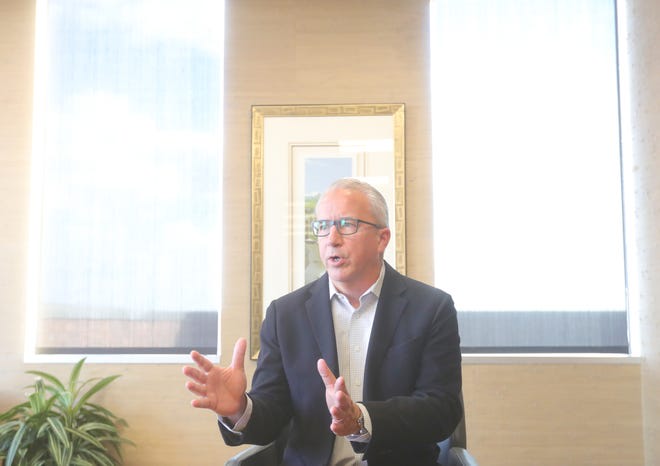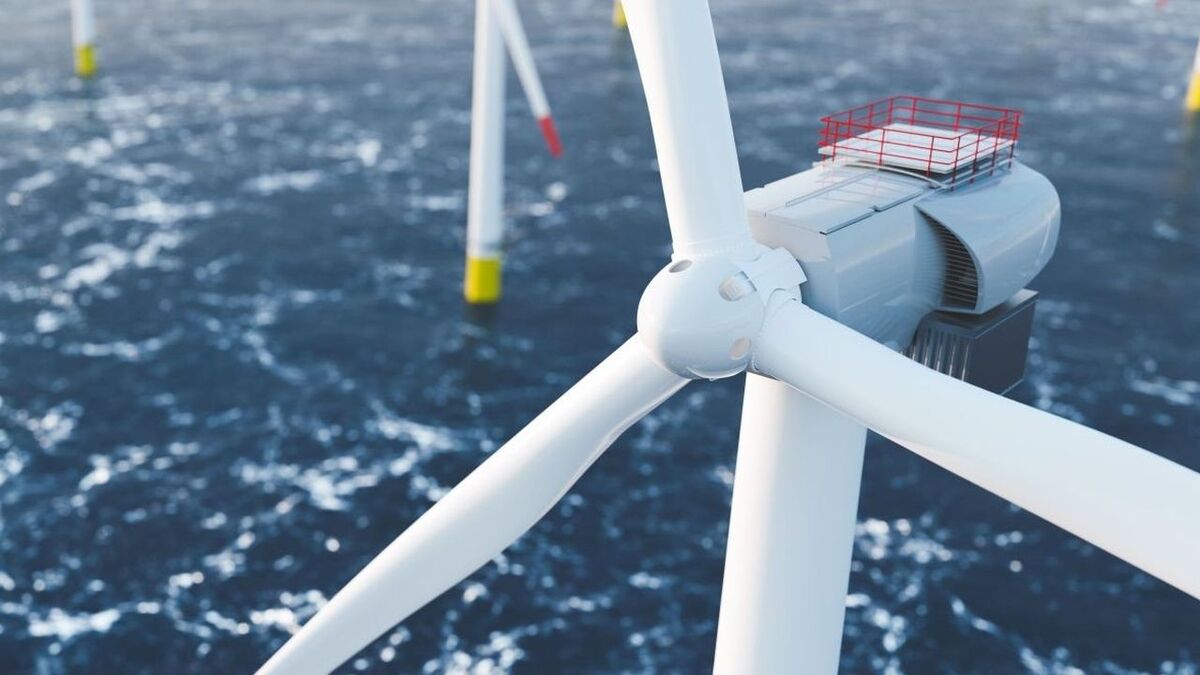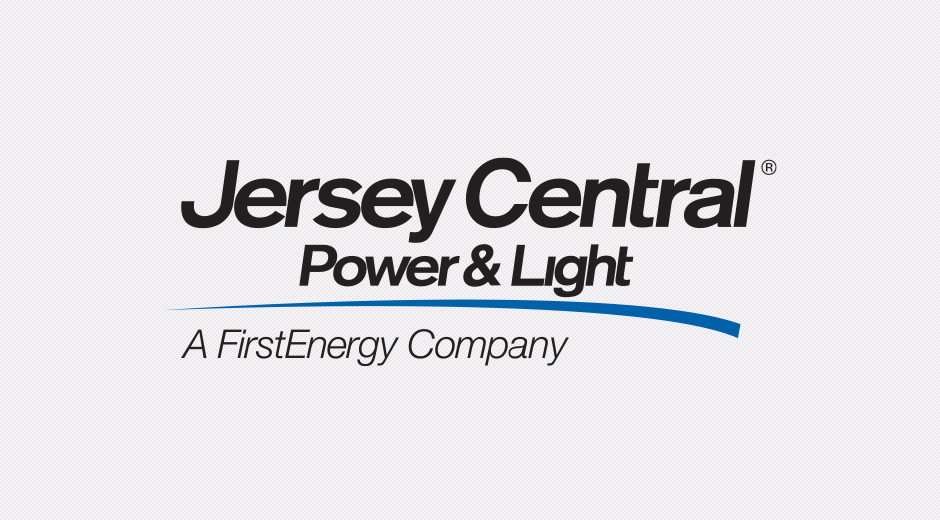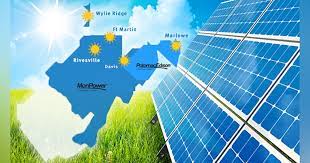With sustainable energy, transactions, and a better balance sheet, FirstEnergy is looking to the future.
FirstEnergy Corp

While striving to put a major statewide scandal behind it, FirstEnergy Corp. continues to work to keep the lights on in five states while improving its stock and bond investor appeal.
CEO Steven Strah says he's focused on pushing the Akron utility forward, not only dealing with the fallout from the $61 million Larry Householder/House Bill 6 racketeering and bribery scandal.
Strah, who took over as acting CEO in October 2020 and was promoted to full-time in March, spoke with the Beacon Journal this week about how FirstEnergy is evolving as a firm as well as the ongoing investigations and reviews surrounding the statewide issue.
He also stated that the utility is still determining when its Akron employees will be able to return to their downtown office building. Depending on what happens with the COVID-19 pandemic, the earliest opportunity appears to be the end of February. FirstEnergy, which employs roughly 12,000 people across five states, could adopt a hybrid office and remote work approach, according to Strah.
Strah said he is focusing the majority of his efforts on creating a customer-friendly, five-state electric utility and restoring stakeholder trust and confidence in the organisation.
Strah said he and colleagues at FirstEnergy have been working hard over the last year "doing the really difficult work required to put the past behind us and pave a very bright and successful way forward and I believe we've made significant progress in this regard."
"We also have a very sustainable, very steady business model with FirstEnergy," Strah added. "The business model is based on the fact that the company is now a pure-play transmission and distribution corporation. This simplifies our business strategy and aligns with the company's and employees' key competencies."
Utility transmission lines transmit electricity across great distances from power plants, whereas distribution lines, which run through communities, are for short distances.
In November, FirstEnergy announced two "transformative" initiatives, according to Strah:
• The sale of a 19.9% minority ownership in FET, its regulated transmission business, to Brookfield for $2.4 billion in cash, with the transaction likely to completion next year.
• A $1 billion equity transaction to Blackstone Group, which includes a seat on the FirstEnergy board of directors.
"We believe the overall $3.4 billion will be transformational for our firm in a number of ways," Strah added. "For starters, it allows us to make a couple of different capital improvements in the [transmission and distribution] system over time. It also presents us with a fantastic opportunity to strengthen our financial position."
According to Strah, FirstEnergy was not in a terrible condition prior to these activities. However, he stated that the corporation needed to strengthen its financial position, particularly in regards to its debt level. FirstEnergy's balance sheet will be strengthened as a result of the injections.
The Brookfield and Blackstone deals, along with the recent Ohio agreement to refund $306 million to state customers and the $230 million Department of Justice deferred prosecution agreement from earlier this year, help FirstEnergy stakeholders, including investors, have more certainty, according to Strah.
FirstEnergy intends to use $2.2 billion of the upcoming $3.4 billion to boost capital spending to $17 billion by 2025, with $10 billion earmarked for sustainable energy.
According to Strah, FirstEnergy would invest billions of dollars in the next years to improve the reliability of its transmission and distribution systems.
Customers will receive 700,000 smart metres, and more than 200,000 so-called line circuits will be installed to assist lessen the impact of power outages, according to him. He also stated that money will be invested to help maintain line voltage within acceptable bandwidths.
According to Strah, FirstEnergy's goal is to become a carbon-neutral utility by 2050. To do so, it is partnering with solar, wind, and other non-fossil fuel energy suppliers across its five-state territory.
Strah also highlighted that ,FirstEnergy is planning for an energy transition away from natural gas and coal and toward renewable energy sources such as wind farms and solar panels.
While FirstEnergy bills itself as a pure-play regulated transmission and distribution firm, it also owns two coal-fired power plants in West Virginia. According to Strah, the company intends to keep the coal facilities operational while trying to make them cleaner. According to Strah, the plants offer jobs and are an essential element of West Virginia's economy.
In a Chapter 11 bankruptcy filing, the business separated off its generation subsidiary, FirstEnergy Solutions. Energy Harbor, an Akron-based subsidiary, emerged from bankruptcy proceedings in 2020.
Shortly after, FirstEnergy got implicated in Ohio's largest bribery scandal, a controversy that it helped develop and pass House Bill 6, which awarded more than $1 billion in subsidies to two former FirstEnergy nuclear facilities now owned and operated by Energy Harbor.






